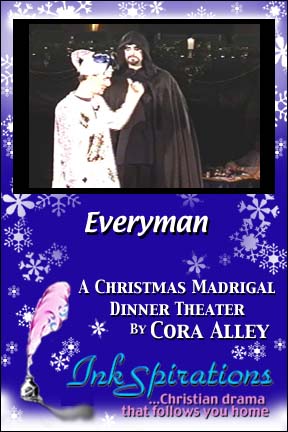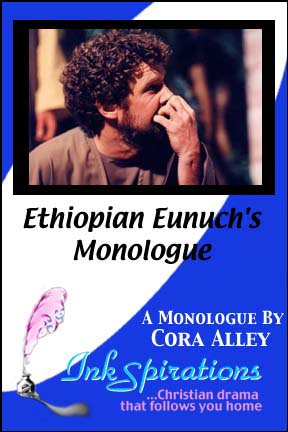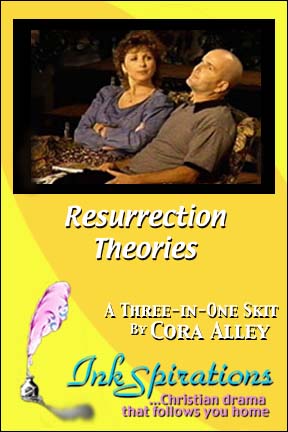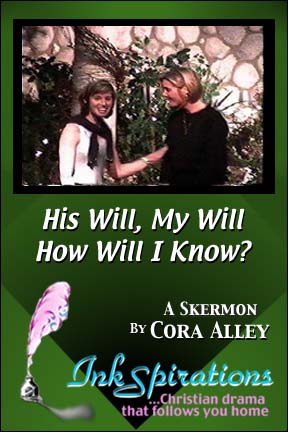-
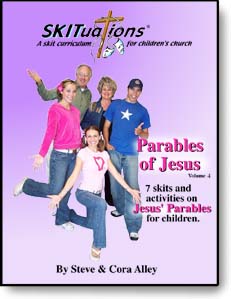 Throughout this volume of 7 Skit Packages, Jesus’ parables are highlighted, as the real-life situations in the skits mirror the conflicts and settings of the original parable. In the middle of each skit, Rufus reads the parable, directly from the Bible. Each lesson suggests a snack with the “best part in the middle,” like corn-dogs, Twinkies, cup cakes, etc., to help make the point that you have to dig for the “best part” (the lesson) in Jesus’ parables.
Throughout this volume of 7 Skit Packages, Jesus’ parables are highlighted, as the real-life situations in the skits mirror the conflicts and settings of the original parable. In the middle of each skit, Rufus reads the parable, directly from the Bible. Each lesson suggests a snack with the “best part in the middle,” like corn-dogs, Twinkies, cup cakes, etc., to help make the point that you have to dig for the “best part” (the lesson) in Jesus’ parables. -
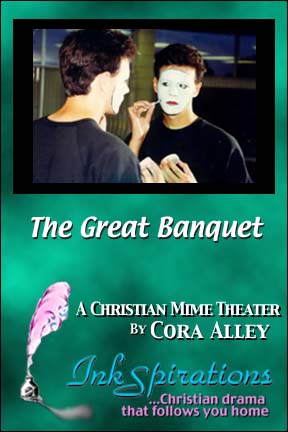 This Christian Mime Theater skit portrays those who accept the invitation of God to join His banquet (life in Christ) as well as those who "reject it, for their own weak reasons. This pantomime paints a visual picture, and sets up a message on salvation and free will, through a contemporary lens.
This Christian Mime Theater skit portrays those who accept the invitation of God to join His banquet (life in Christ) as well as those who "reject it, for their own weak reasons. This pantomime paints a visual picture, and sets up a message on salvation and free will, through a contemporary lens. -
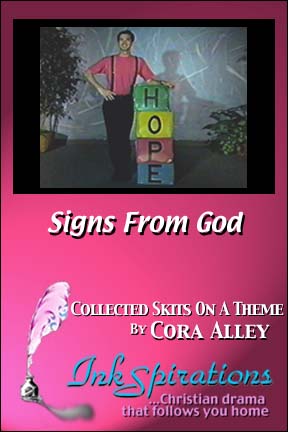 These four "Collected Skits" are on the theme of fruitful Christian living: stewardship, holiness, love, and hope. Together, these skits combine to show four areas of life that God intends to govern, as well as, bless when we submit and obey His commands. This is excellent for a sermon on the Christian life.
These four "Collected Skits" are on the theme of fruitful Christian living: stewardship, holiness, love, and hope. Together, these skits combine to show four areas of life that God intends to govern, as well as, bless when we submit and obey His commands. This is excellent for a sermon on the Christian life.


